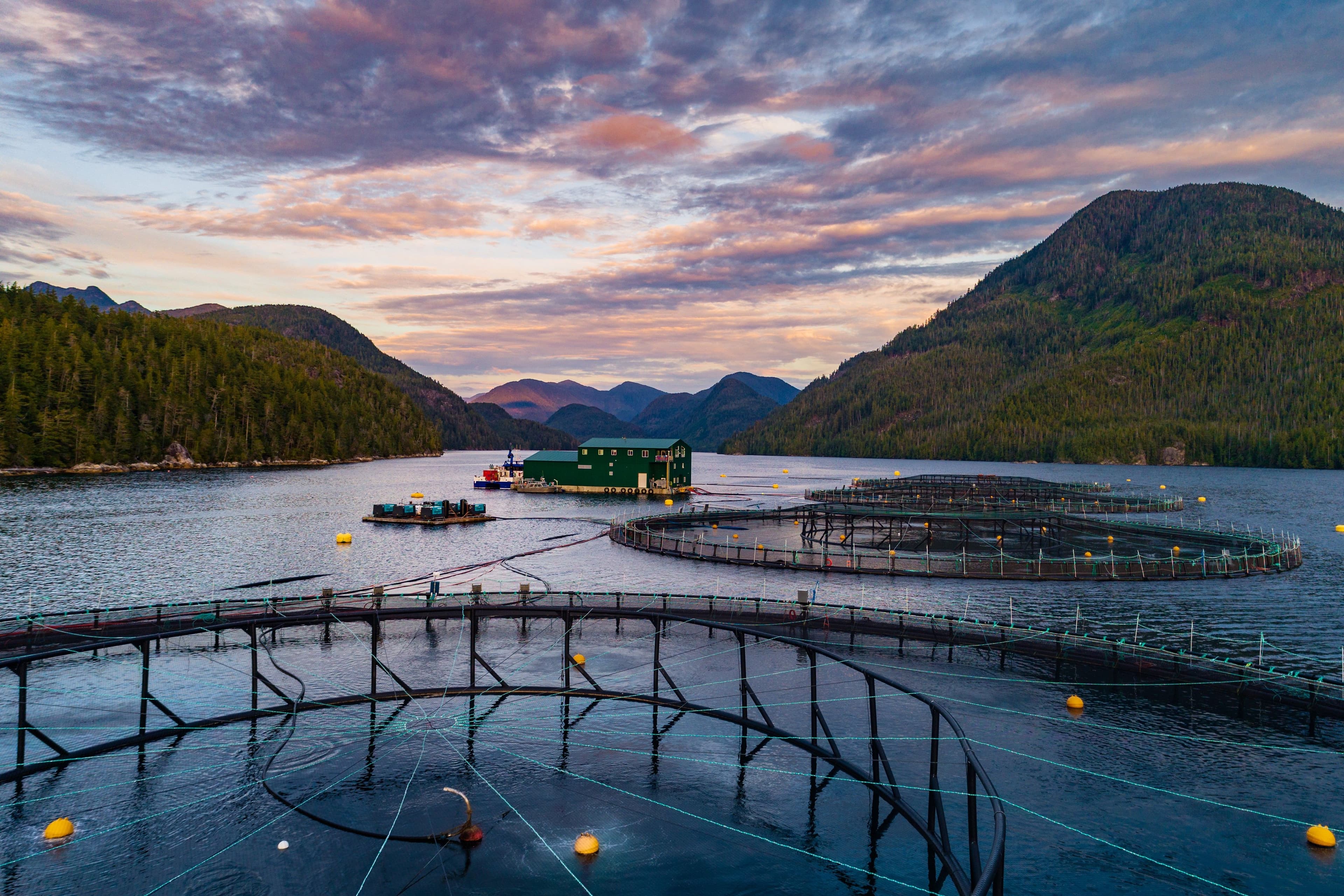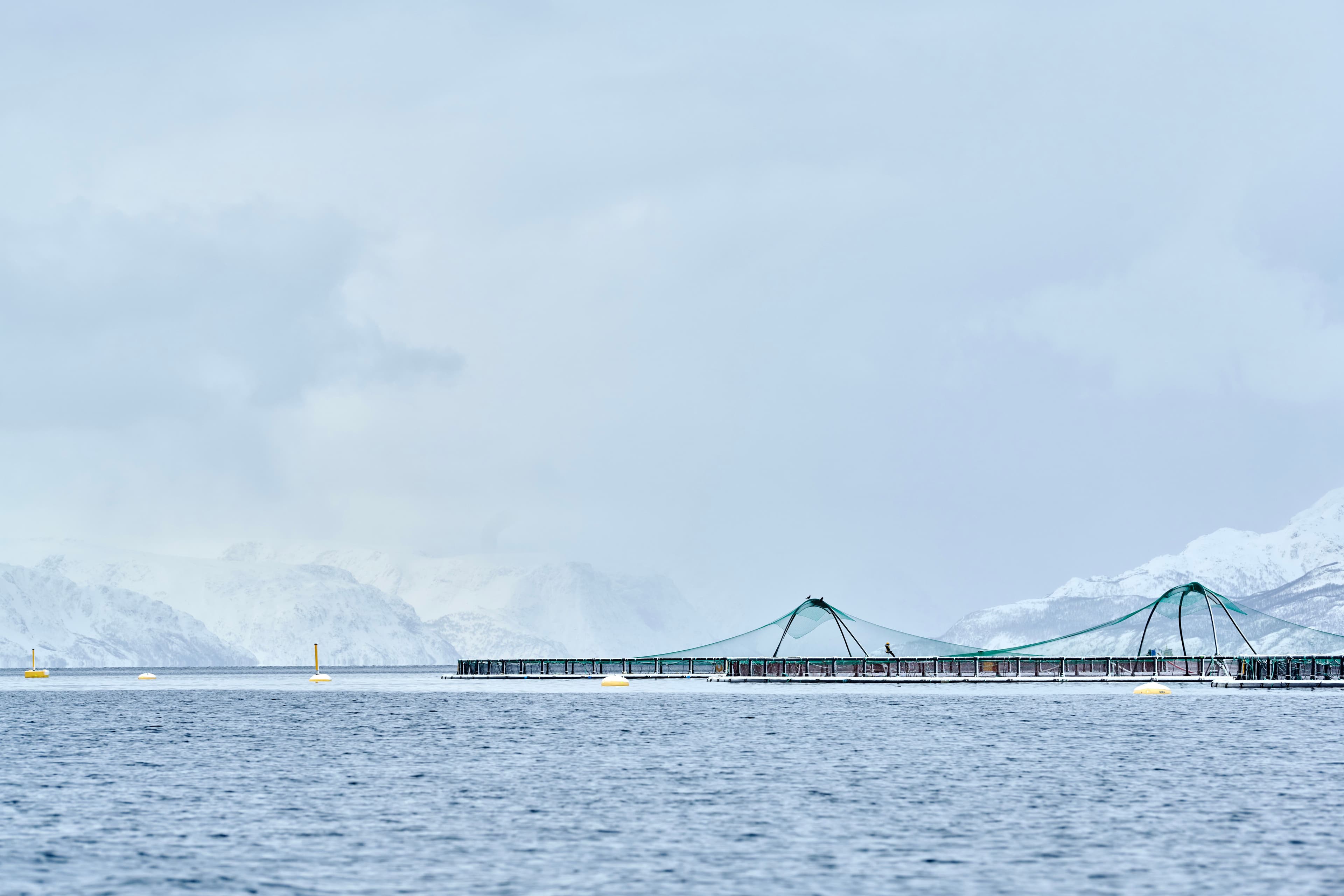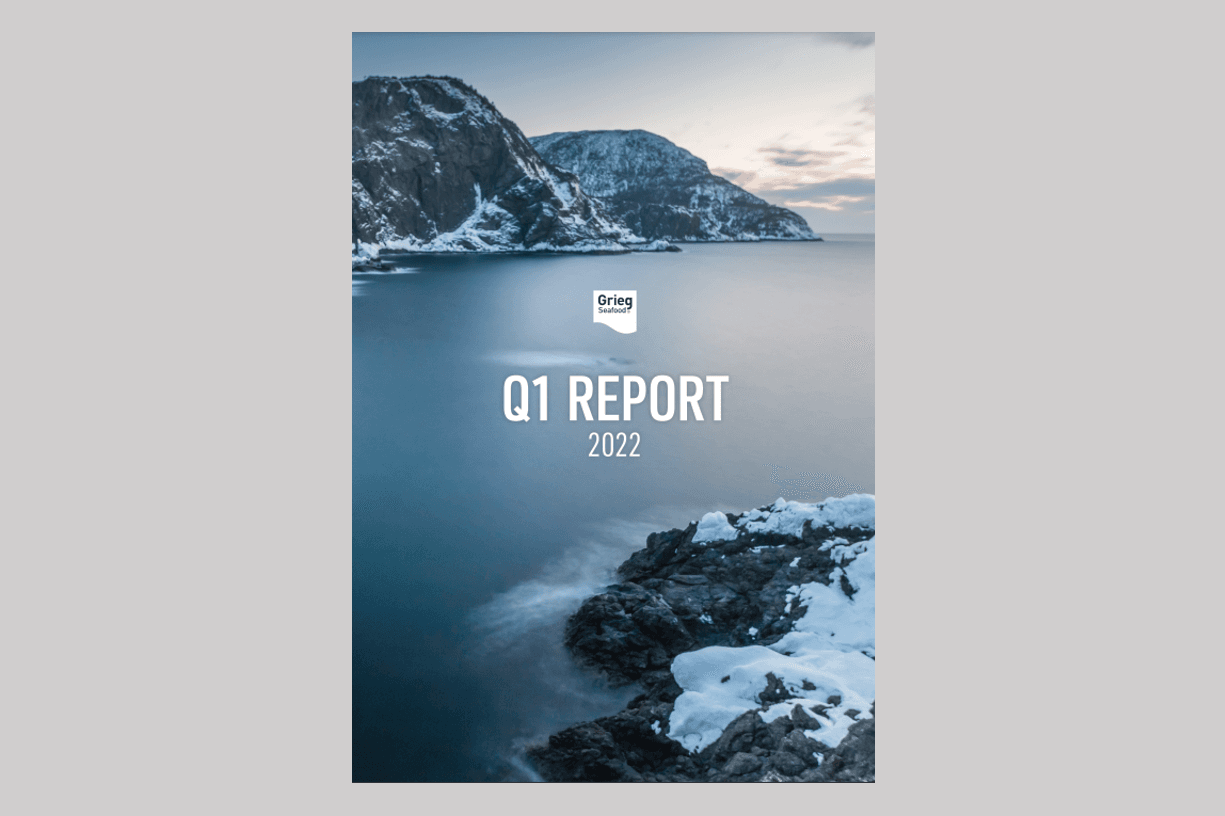
TAKING CARE OF EMPLOYEES
Since the outbreak of Covid-19, employee well-being has been the number one priority for Grieg Seafood. We have crisis management teams at the head office and in each region. We follow the advice of the authorities in the regions where we operate. We have implemented measures to lower the risk of transmission and safeguard business continuity, including strict rules at production sites and harvesting facilities to limit physical contact and encourage social distancing. Working from home has been encouraged whenever possible, and business travel has been restricted.
PRODUCTION MAINTAINED
During the pandemic, the salmon farming industry has been recognized as an essential function in the regions where we operate. Despite the challenging circumstances, we have been able to maintain efficient operations. Through industry organizations, Grieg Seafood maintains a constructive dialogue with the authorities, continuously monitoring and discussing possible arrangements to safeguard our salmon farming operations in various scenarios.
Since the outbreak of Covid-19, employee wellbeing has been the number one priority for Grieg Seafood.
CHALLENGING AND VOLATILE MARKETS
Covid-19 has disrupted the salmon market, and caused a significant shift in demand, away from the hotels, restaurants and catering (HoReCa) segment towards the retail segment. Successive waves of restrictions and lockdowns have impacted consumption patterns in most markets. particularly in Europe and the USA. Despite this, our sales have remained good, though salmon prices have fallen.
The retail segment and home consumption have been boosted. The shift from HoReCa to retail is expected to be reversed at some point, but the current market situation may also lead to permanent changes in consumer behavior. With an increasing share of people preparing food at home, combined with a growing preference for healthy food and the current low prices, the demand for salmon may increase in the retail segment going forward.
Supply lines have remained largely open during the year. However, somewhat limited availability has made airfreight expensive. Most of our salmon is shipped by truck from Norway or the UK to European markets, or from Canada to North American markets. Our diversified geographical presence provides some flexibility and reduces logistical challenges.
With an increasing share of people preparing food at home, combined with a growing preference for healthy food and the current low prices, the demand for salmon may increase in the retail segment going forward.
ENSURING FINANCIAL STABILITY
Following the outbreak of Covid-19, market uncertainty increased and prices have come down in all core markets, impacting the Group's earnings negatively. In November 2020, we were granted temporary amendment to the financial covenants in our loan agreements with secured lenders through the third quarter of 2021. We were in compliance with the temporary amended financial covenants at 31 December 2020. Our equity-ratio measured according to IFRS was 41% at year-end 2020, while the equity-ratio according to covenants was 43%.
Due to higher market uncertainty, the risk of bad debts has increased. Grieg Seafood has good routines for collecting and managing trade receivables, and we have an open dialogue with our customers. Countries highly dependent on tourism have been hit hard, and the US market has been badly affected due to the importance of the HoReCa segment. The increased risk of loss has been reflected in our accruals.
Our investment target for 2020 was NOK 1 664 million. Total investments for 2020 ended at NOK 1 689 million, which include both the cash consideration related to the acquisition of Grieg Newfoundland and capital expenditures made in Shetland. In the current, highly uncertain market climate, we continuously evaluate our investment projects. Low salmon prices and reduced market visibility, in addition to increased project complexity, has impacted the pace of investment in our largest project, Grieg Seafood Newfoundland. The changes will not affect our on-growth capacity or our harvesting targets.
The Company´s long-term dividend strategy states that the average dividend should correspond to 30-40% of profit after tax, before fair value adjustment of biological assets. Dividends are evaluated twice a year. Due to the increased volatility and uncertainty caused by the Covid-19 situation, combined with an extensive investment plan, the Board has decided to postpone the ordinary dividend for 2020.
GOVERNMENT GRANTS AND SUPPORT
Grieg Seafood Newfoundland has received approximately NOK 3.9 million in Covid-19 funding through an innovation assistance program and a regional relief program in Newfoundland. No other regions have received any government grants or direct economic support due to the impact of Covid-19.


